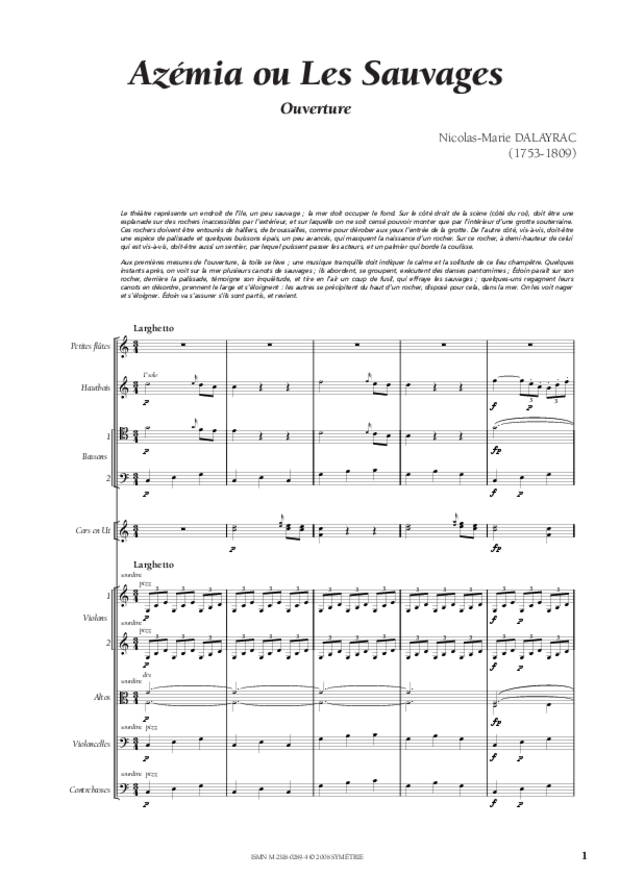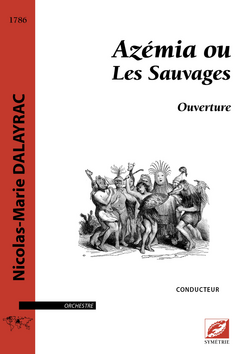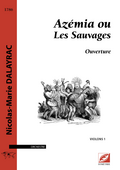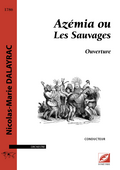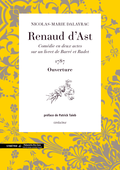Nicolas-Marie Dalayrac was born on June 8th, 1753 in Muret (Haute-Garonne) and died on November 26th, 1809 in Paris. From French nobility, he studied as a child the violin and singing, then pursued law studies according to his father’s wish, then entered a military career. In the Parisian salons he met with several musician a.o. the chevalier de Saint-George (1739-1799) and Honoré Langlé (1741-1807) who taught him composition. His first works are violin duets as well as string trios and quartets. Published under an Italian pseudonym, they were met with a certain success in Europe. Not before 1783 did he resign from a position of Second Lieutenant of the personal guard of Count of Arbois in Versailles to fully dedicate to music after the success of his first operas, L’Éclipse totale and Le Corsaire.
Dalayrac is seen as the heir of André-Ernest-Modeste Grétry (1741-1813), a major contributor to the development of the Opéra Comique genre until the French revolution: he wrote for the Comédie-Italienne entertaining operas, spectacular and well-built, but also sensitive and refined, with carefully chosen libretti, often offering a real psychological or social study. His taste for graceful and easily remembered tunes, influenced by the vaudeville and popular repertoire, was enjoyed by the French audiences, who loved songs. His orchestration was imaginative and efficient, favoring wind instruments solos; a great formal command and the use of recurrent themes are characteristic of his style. He was also very much appreciated for his romances, a very popular musical genre during the Revolution and the Empire, but much in decline under the Restauration. His romance is conceived as a simple strophic song, often naïve and sentimental in mood.
A prolix and popular composer Dalayrac died in 1809 just after completing his opéra comique Le Poète et le Musicien meant to be created for the anniversary of the crowning of Napoleon 1st. His works include 62 operas, 13 instrumental pieces, many songs and a theater play.
Publications
Format bibliographique à copier
Dalayrac, Nicolas. Ouverture d’Azémia ou Les Sauvages, Symétrie, 2020, 31 p.Dalayrac, Nicolas. Azémya ou Les Sauvages, ouverture, Symétrie, 2020, 31 p.
Dalayrac, Nicolas. Azémya ou Les Sauvages, ouverture, Symétrie, 2020.
Dalayrac, Nicolas. Ouverture de Renaud d’Ast, comédie en deux actes, Symétrie, 2007, 24 p.
